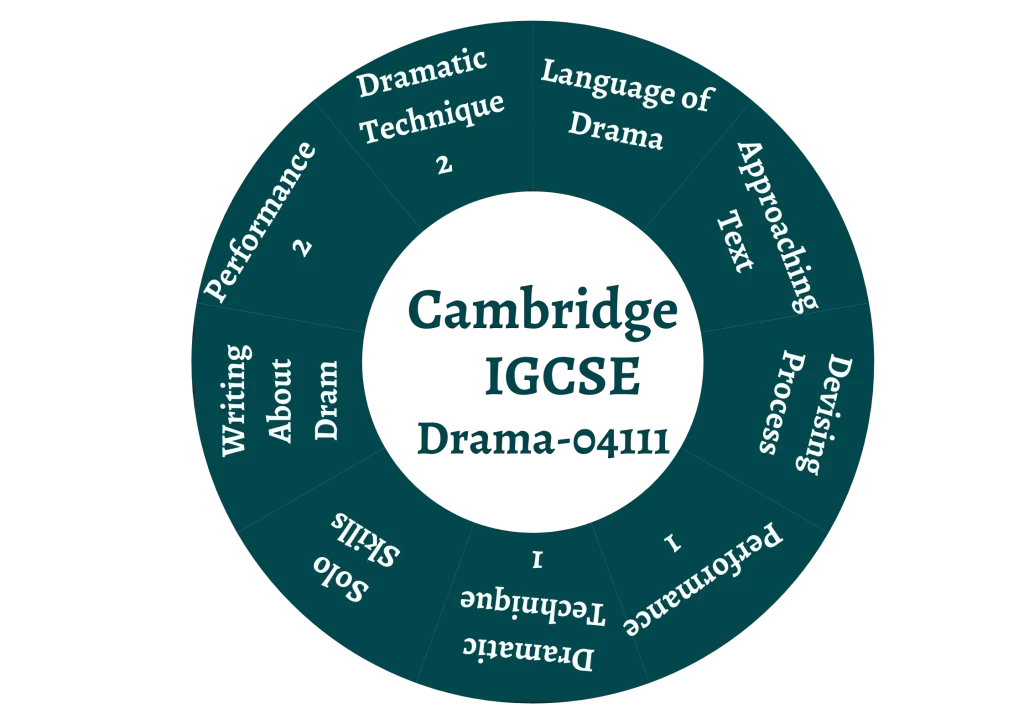Cambridge IGCSE Drama-0411 Past papers
Cambridge IGCSE Dram-0411 past pers helped me to qualify for the final examination. With the help of IGCSE Drama-0411 past papers, I prepared important topics, its marking scheme, and the grading threshold. I also focused on the important syllabus topics that might be repeated in the final examination. Its syllabus enabled me to learn how to communicate with an audience. I learned to focus on the key points that affect performance in front of the audience.
Its specimen enabled me to understand the crucial dramatic materials needed to make a career in this field. The grading scale of Drama-0411 is A to G. I prepared this subject using past papers because past papers are helpful sources for gaining high grades.
Download Cambridge IGCSE Drama-0411 Past papers.
IGCSE Drama-0411 Syllabus Overview

Its syllabus enabled me to gain practical skills in drama and essential factors that affect performance. It enables me to understand the dramatic material. Some of the aims of this subject are
- the elements of practical drama
- how to work with extracts from published plays as an actor, director, and designer
- how to devise, develop, and structure their original dramatic material from stimuli such as short titles, poems, pictures, songs, historical events, and stories
- how to evaluate their contribution to the devising process and the success of the final piece
- how to use staging and design as part of a dramatic performance
- individual and group performance skills and how they are applied to create character and communicate meaning to an audience.
IGCSE Drama Syllabus Aims
The major aim of its syllabus is to enable students to learn the basic perspectives of performance.
- an interest in and enjoyment of drama and theatre
- an understanding of the dramatic process of moving from script to performance
- skills in devising original drama
- practical performance skills as individuals and within a group
- an understanding of, and engagement with, the role of actor, director, and designer in creating a piece of drama
- An understanding of how performers communicate with an audience
Assessment methodology
This subject is assessed through two papers. Paper 1 is a written paper that holds a total of 80 marks. All questions for this paper are compulsory. It is externally assessed. There are three sections in this paper. Paper 2 is based on coursework. In this paper, students must submit three projects from the syllabus. It is based on practical assessment. This paper is both internally and externally assessed.
component 1: Paper 1
| Focus of questions | Question type | Marks | |
| Section A | An extract from a published play. Candidates should have studied the extract and explored it as a practical theatre, investigating performing and staging opportunities. The extract is supplied in the pre-release material, identified as Extract 1. | Up to eight short-answer and extended-response questions. Marks per question range from 2 to 10. Candidates answer all questions | 30 |
| Section B | An extract from a published play. Candidates should have studied and explored the extract as a practical theatre, investigating performing and staging opportunities. The extract is supplied in the pre-release material, identified as Extract 2. | Candidates answer two extended response questions. One compulsory question (10 marks) and one question from a choice of two (15 marks). | 25 |
| Section C | A devised piece that candidates have developed and performed to an audience. The pre-release material is not required for the devised piece – teachers choose the stimulus | Two extended-response questions. Candidates answer both questions (one is worth 10 marks, the other 15). | 25 |
component 2: Paper 2
| Practical work | Duration* | Source material |
| Individual performance | 3 minutes maximum | An extract from a published play. The extract is chosen by the teacher and must not be from the pre-release material. |
| Group performance (2–6 candidates) | 3–5 mins per candidate; 20 minutes maximum | An extract from a published play. The extract is chosen by the teacher and must not be from the pre-release material. |
| Group devised piece (2–6 candidates) | 3–5 mins per candidate; 20 minutes maximum | Stimulus chosen by the teacher |
Performance skills
The performance skills I achieved after analyzing these subjects enabled me to establish my career in this study area. I learn how to maintain confidence in front of an audience. I also learned how to understand the audience’s interests and demands best. Some of these skills that I learned through this subject are mentioned below
- a range of vocal and physical performance techniques
- effective use of performance space
- creation of role through the realization of character
- the ability to sustain role(s) throughout a performance
- the use of pacing, tension, and emotional intensity in performance
- how to communicate with the audience through engaging performance
- skills in individual/solo performance
- skills in working with others in group performance
- how to improve their performance through rehearsal and interaction
Key elements of performance
key design areas that play they’re contributed to a dramatic performance are:
- costume, e.g., how costume design can communicate period, style, character, status
- set, e.g., how set design can help communicate a director’s dramatic ideas
- props, e.g., how stage properties can be a part of a set design and how the use of personal props can help actors develop their character
- lighting, e.g., how lighting can create mood and atmosphere and contribute to transitions – sound, e.g., how sound can be used to create spot or atmospheric effects
- stage space, e.g., how the use of the performance space and staging can affect an audience’s reaction to a performance
